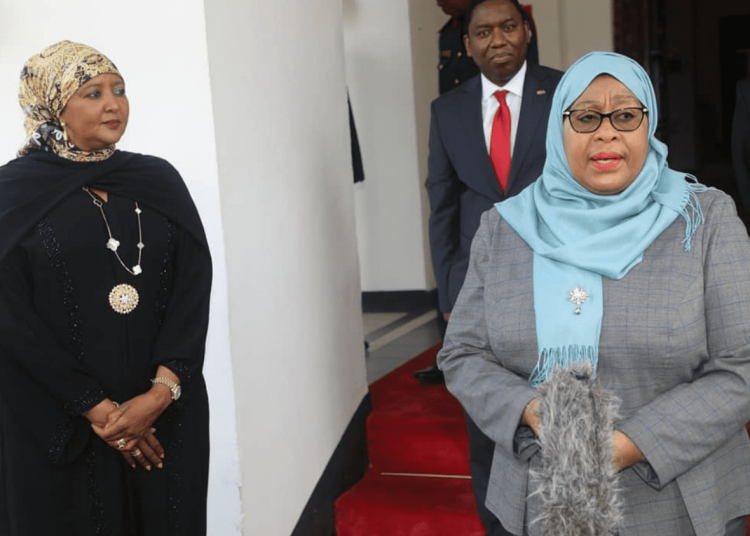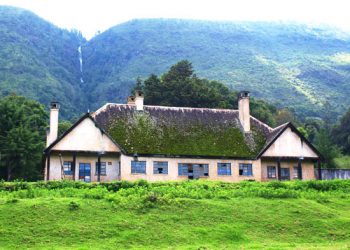When Samia Suluhu Hassan, the new Tanzania President, took to the microphone in her first presidential speech on March 18, 2021, she outlined a new foreign policy direction for the East African country which Kenyans have taken an interest in.
“We cannot isolate ourselves as if we are an island,” she said.
More than any other country, it is in Kenya, with punctured relations with Tanzania that this message reverberated the most perhaps leading to a sharp increase in the number of Kenyans following President Suluhu’s Twitter account after her inauguration.
By the time of his death, on March 17, Kenyans had designated President Magufuli as an enemy to their national interests likely in the same category as the Al Shabaab terrorist group.
On his last days on earth, Magufuli’s government had not only jailed 26 Kenyans for trespass despite free movement of people within the East Africa Community but had publicly shockingly urged Tanzanians to inflate the cost of maize sold to Kenya.
That is why Suluhu’s announcement that Tanzania shall “enhance and promote our relations with our neighbours” and “our ties will continue to be good and even get better under my leadership,” has Kenyans waiting to see her next steps.
Magufuli’s reign in Tanzania has since Kenya’s trade with the country register a stagnated growth, with exports hovering as high of Sh35.5 billion in 2016 dropping to a low of Sh29.9 billion in 2018 and starting to regain to Sh33.8 billion in 2019 according to the Kenya Economic Survey of 2020.
Prof Amukowa Anangwe, Kenya’s former Foreign Minister and currently a professor at Dodoma University says it is a wait-and-see game as far as Suluhu’s commitment not only to med ties with Kenya but also to commit Tanzania to a genuine positive role in her East Africa Common Market responsibilities.
“The late President Magufuli was inward-looking. Unlike his predecessor Jakaya Kikwete who had a passion for regional integration and generally the EAC in particular,” he said.
“Tanzania has been lukewarm towards the EAC. Most of the time, it holds back its governmental decisions whereas other countries have taken those decisions to move some of the protocols and treaties forward. So I don’t think that Magufuli has a strong legacy of regional integration. He has been an impediment, to say the least,” Prof Anangwe reportedly said.
Ken Opalo a Professor in the School of Foreign Service at Georgetown University say Suluhu is the ideal candidate to lead the quest for a more integrated region.
“Beyond the symbolism, she could also bring a different perspective to the bloc’s relations and achieve very visible quick wins in terms of regional agreements in the early stages of her presidency. If Kenya and Tanzania can find solutions to their bilateral sticking points, the rest of the region will likely follow along,” Opalo told Kenyan daily, The Standard.
Positive steps and Suluhu’s promises
President Uhuru Kenyatta was the only EAC leader to attend the burial of Mugufuli, signifying Kenya’s openness in calibrating relations with her southern neighbour.
Kenya’s Ministry for Foreign Affairs confirmed that Kenyatta expressed interest to fast track the revival of cordial relations between the two countries.
Suluhu on the other hand sent the delegation to tell Kenyatta that Tanzania and Kenya should revive the Joint Permanent Commission to drive the strengthening of the bilateral ties. The Commission has not met since 2016.
On April 11, the Tanzanian leader made her maiden-trip as Head of State to Uganda, where she signed a deal for the 1,443km oil pipeline from Uganda’s Albertine Basin to Dar es Salaam; a transaction that is expected to boost relations between Dar and Kampala.
The $3.5 billion (Sh374 billion) project that involves oil giants Total and China’s CNOOC is seen as a big boost to East Africa’s oil export ambitions. But this is a loss for Kenya as it has formally lost Uganda with whom it wanted to do a similar project through Kenya.
The mess that Mugufuli left
But what exactly is the state of the integration and joint project agenda in East Africa? Seven years ago, Heads of State from Uganda, Rwanda and Kenya and South Sudan pledged to jointly invest in building roads, rail, airports and pipelines in a declaration that promised to redraw the region’s knackered infrastructure system.
That is perhaps the furthest they went in the formation that came to be called the ‘Coalition of the Willing’. This initiative, also dubbed Northern Corridor Infrastructure Projects, had been seen by its proponents as a faster alternative towards fully integrating the EAC.
The four countries agreed to build a standard rail line from Mombasa to Kigali via Kampala, with an intermediary running through to Juba. They also said they would build a crude oil pipeline running through Hoima in Uganda to Lamu, with a branch connecting it to South Sudan’s oil fields. Kenya, Rwanda and Uganda also agreed to jointly develop an oil refinery in Hoima.
Around 2017, under the leadership of Magufuli who around that time was chairing the EAC, Tanzania had different ideas. Tanzania and Burundi, were from the early days of the coalition relatively non-committal, leaving Kenya, Uganda, South Sudan and Burundi pursuing the joint projects.
This created a dysfunctional two-track setup which threatened to send the EAC collapsing as the first one did in 1977. Kenya would soon find herself deserted as Tanzania and Rwanda looked elsewhere.
Uganda later announced that it had chosen to construct its pipeline through Tanzania to Tanga port instead of Kenya, a move that despite all efforts were never reversed.
People familiar with the background happening say that the exit of Uganda from the Kenyan route was even more painful for Kenya as it changed the economics of the Kenyan crude pipeline.
The Uganda crude oil pipeline was expected to cost $4 billion, while the Kenyan one $2.1 billion. Kenya’s recoverable oil deposits are estimated at 750 million barrels, while Uganda’s are estimated at 1.6 Billion barrels
Similarly, Rwanda announced that it would transit its Standard Gauge Railway through Tanzania and not Kenya as earlier planned.



![[Photo/Unsplash]](https://financialday.co.ke/wp-content/uploads/2023/11/NFT-360x180.jpg)


